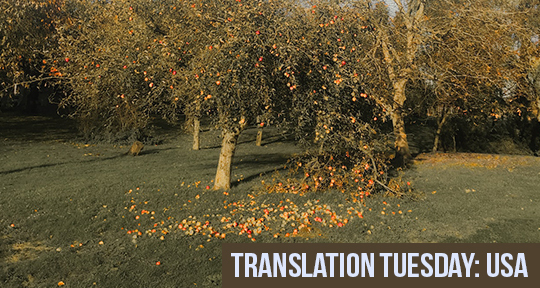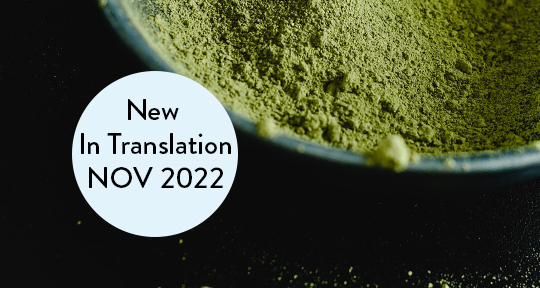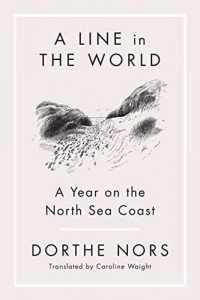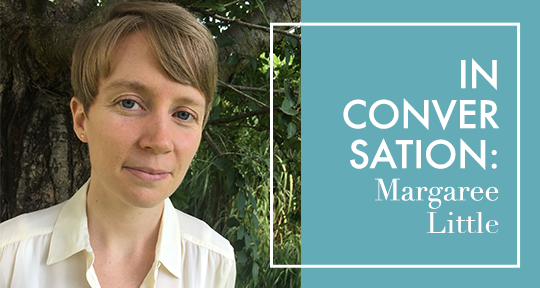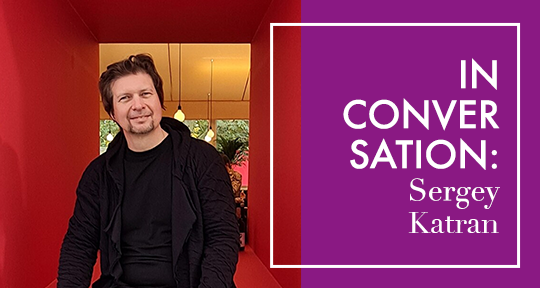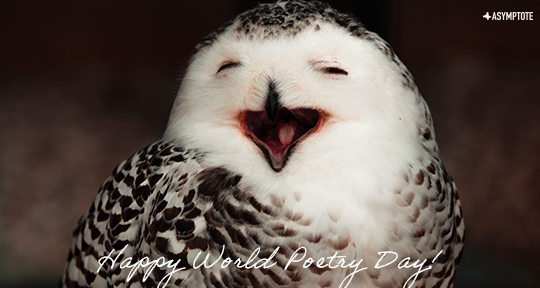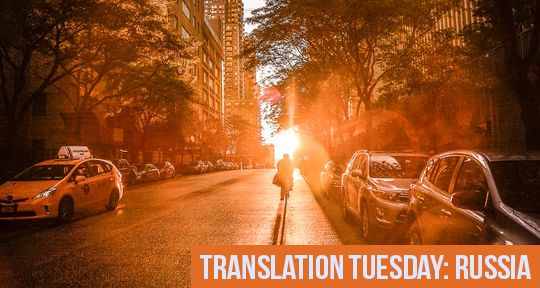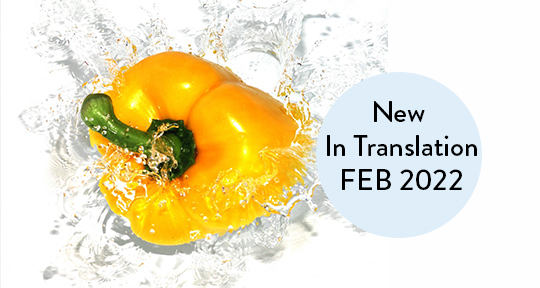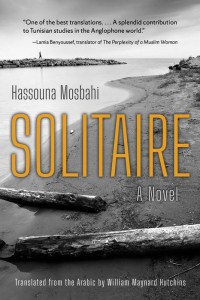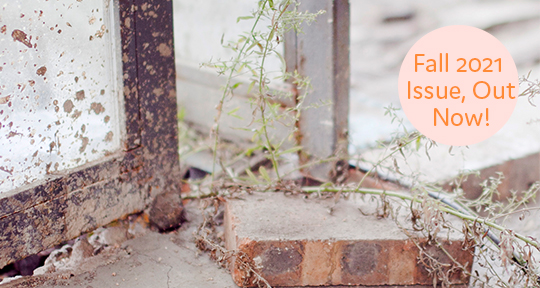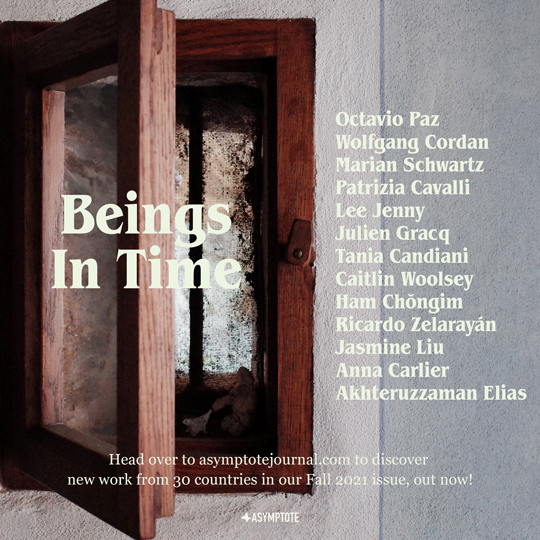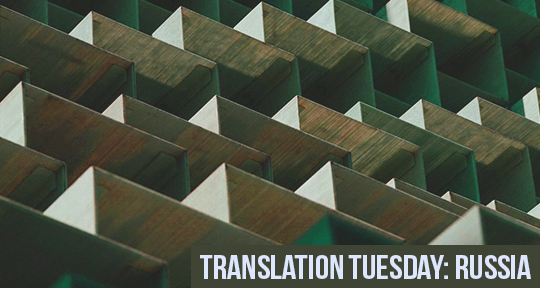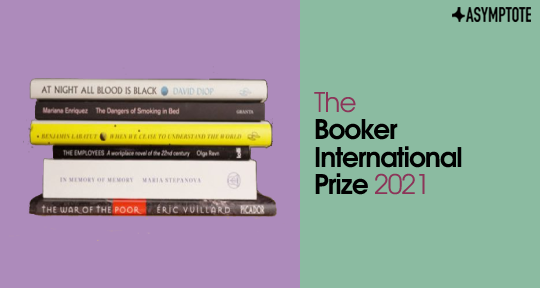This Translation Tuesday, we bring to you two energetic poems from the Russian by Irina Mashinski, author of The Naked World and a prolific writer herself in both English and her native Russian. Harnessing the potential of Irina’s bilingualism and exophony, translator Maria Bloshteyn speaks of her dialogic translation process: “The process of translation with a bilingual poet becomes much less about the translator finding the perfect phrase or equivalent rhythm in the target language, and much more about assisting the poet by providing variations of translations of a single line or stanza for her to choose.” Dive right into this strange, mesmerising wasteland of this poetic collaboration.
In Absentia
1. Twilight
The tree is dead,
I drag it down the slope,
half-sinking in the snowbanks.
So will my Faustian questers
someday
haul me through the snow,
in just such tin-stiff mittens,
all my odd loops and whorls,
this tangle, knots upon the bark—
a pattern seen but once.
And just as quiet and pale
as these stunned trees,
my brother-poets will
escort me:
the icy beech, the hemlock, the black walnut,
the birch, the hornbeam, the bird cherry,
the sugar maple, the plantain, the other maple—
that for a long time will burn
scarlet.
When I’ll be dragged
blinded over the stumps—
through the gully,
over remnants of fencing,
the forked road, the post,
the plaster fountain—
the birdbath overturned,
the empty birdhouse, rot and moss,
the gulley, and the rot and moss,
when I’ll be dragged
down for the extraction
of the golden root—
a ragged trench will stretch across the deep snow,
stippled like a greyhound,
as if the angels wrestled on it,
they’ll stand there scattered in farewell,
the slope as deep as a fresh rough-draft,
not noticing how their legs are whipped
awkwardly by my dead branches,
by the trailing
still unyielding roots.

